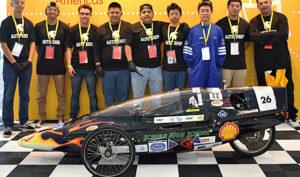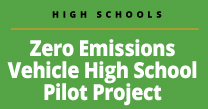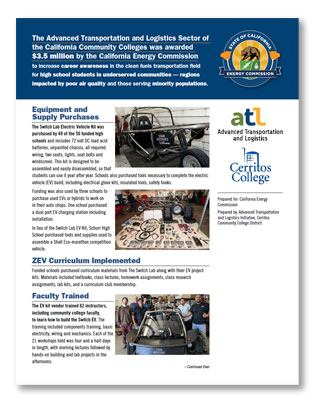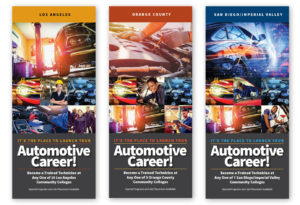The automotive industry is changing more quickly than ever, and employers need their new hires to walk into the shop prepared to hit the ground running. Industry partnerships help high schools and community colleges give students the tools they need to do just that.
The result is a win-win for employers, schools, and students. Industry support provides insight into what skills are needed in the workforce and the resources for training that schools might not be able to provide on their own.
High school auto programs funded through the Energy Commission’s Clean Fuels Transportation Pilot Program have a new industry partner in Switch Vehicles, which provides training for high school and community college instructors to build the Switch electric vehicle kits. The training helps faculty understand how to make the best use of the Switch vehicles in their courses, and make sure students got the most out of the experience.
Industry Partneships = Skills and Opportunities
Many automotive instructors make it a priority to pursue additional industry partnerships to give their students specific skills as well as opportunities for internships and entry-level jobs.
Robert Thayer, an instructor at Davis High School, said his students have participated in a fellowship program sponsored by Harbor Freight Tools, which allows students to build on the skills they learned with the Switch vehicle in the classroom.
“The program places auto tech education students at local automotive service business,” Thayer said. They include mostly independent automotive service and repair facilities and some chain tire shops.”
In 2016, 46% of U.S. employers reported that they faced difficulty filling jobs due to lack of available talent. This number is expected to grow as all types of jobs become more technical and require more advanced skills.
However, as the Aspen Institute notes in its Skilled Trades Playbook, industry-college partnerships are not a “silver bullet” for fixing short-term staffing shortages and should not be approached that way. Instead, they can be a tool to address long-term employment challenges and create pathways for students to become skilled workers in a variety of sectors and industries.
Mike Miller of Clovis West High School understands this framework and has formed partnerships with many car dealerships and repair shops throughout the Fresno area.
“Students have been able to intern at some of these businesses,” Miller said. “We have graduated students working at dealerships and independent shops. Many students have continued on to Fresno City College, UTI, and the military to continue their training.”
Students at Rowland High School also have internship opportunities thanks to instructor Eduardo Martin. Martin has worked to build relationships with Puente Hills Toyota, Puente Hills Chevrolet and the Rowland Transportation Department.
The Orange County Transportation Authority (OCTA) is among the key partners of Valley High School’s Automotive Transportation & Logistics Academy. The program is also supported by Southern California Edison and the Orange County Automobile Association (OCADA) which offers scholarships to students to help with community college costs.
A partnership with Shell Oil has been a huge benefit for auto students at Schurr High School in Montebello, California.
“Shell Oil provides the major support in Engineering mentors for our students looking to attend college,” said instructor Armando Hernandez. “Various vendors throughout our community help with supplies.”
For more information about the Clean Fuels Transportation Pilot Program, click here.





